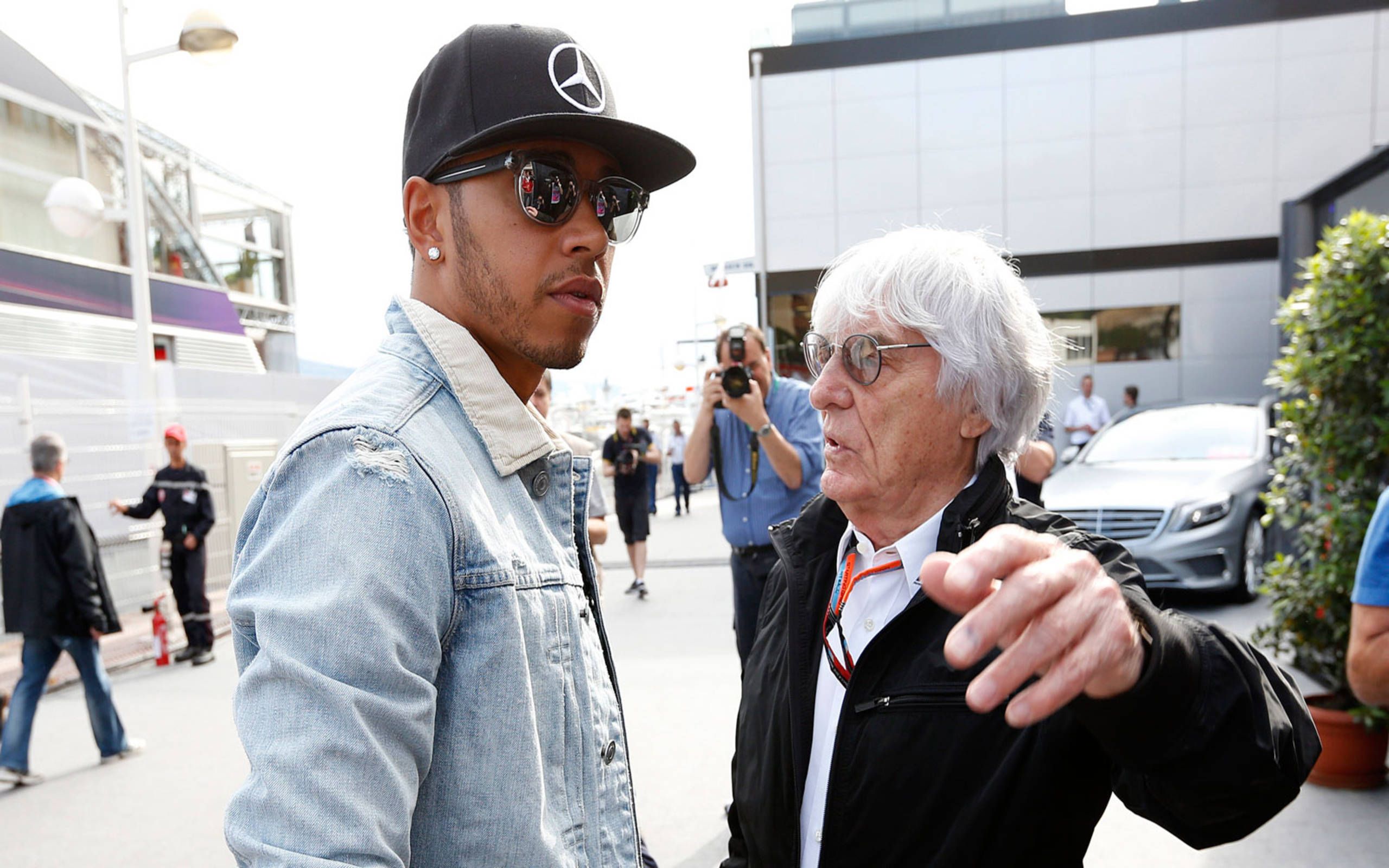A comment made by former Formula 1 CEO Bernie Ecclestone last year has prompted a legal challenge to Lewis Hamilton’s first world championship win.

Felipe Massa, who lost the 2008 title to Hamilton by a single point, seized upon Ecclestone’s remark as proof he was that year’s true champion.
If Ecclestone’s words ultimately force Hamilton to surrender silverware which has sat on his mantlepiece for over a decade and a half, it will be the culmination of years of brewing animosity between the pair.
By the time Hamilton arrived in F1 in 2007, Ecclestone had wielded near-total control of the championship for decades. That ended 10 years later when Liberty Media took over and gave him the token title ‘chairman emeritus’.
While Ecclestone was in charge, crossing him was unwise. Hamilton’s rapid emergence as the sport’s superstar meant he could afford to sail closer to the wind than most. He challenged Ecclestone’s refusal to embrace the emerging power of social media and received a stack of cease-and-desist letters from Formula One Management for posting their footage on his feeds.
Once Liberty Media booted Ecclestone upstairs, Hamilton didn’t disguise his satisfaction. “I’m glad that Liberty has come in because I’m not quite sure if Bernie was here they would have made any changes,” he said in 2019.
“They still wouldn’t have social media because he thought it was useless and it’s just not important, all these different things.”
Hamilton may have been dismayed by Ecclestone’s archaic attitude to social media but F1’s lack of progress in other areas concerned him more. In 2020 he launched the Hamilton Commission to investigate the reasons why black people and other groups are under-represented in motorsport, which led to the creation of the Ignite charity to promote diversity in motorsport.

Ecclestone’s comments prompted Massa call his lawyers
While Ecclestone described Hamilton’s campaign as “wonderful” he also questioned its merit, saying it wouldn’t “do anything bad or good for Formula 1.” In the same interview he added: “In lots of cases, black people are more racist than what white people are.”
The new administration at F1 denounced the comments made by its former head. “At a time when unity is needed to tackle racism and inequality, we completely disagree with Bernie Ecclestone’s comments that have no place in Formula 1 or society,” it said, adding that his “emeritus” position ended in January 2020.
Hamilton’s response was stronger still, noting how under Ecclestone F1 reacted weakly to public racist abuse he suffered at the end of his first season in the championship.
“It makes complete sense to me now that nothing was said or done to make our sport more diverse or to address the racial abuse I received throughout my career,” said Hamilton.
“Bernie is out of the sport and a different generation but this is exactly what is wrong: Ignorant and uneducated comments which show us how far we as a society need to go before real equality can happen.”
The rift between the pair escalated in 2022, when it emerged world champion Nelson Piquet had referred to Hamilton using racist language. F1 barred Piquet from the paddock and others took similar action against him.
Ecclestone, who as Brabham team principal took the driver to two of his three titles, denied the comments were racist and said Hamilton should have “just brushed it aside.” In the same interview he reiterated his support for Russian president Vladimir Putin, three months after the country’s invasion of Ukraine, saying: “I’d still take a bullet for him.” He soon apologised for the latter remarks.
Hamilton made it clear he’d had enough. “It comes back down to F1, to the media, we should not be giving these people a platform,” he said. “These old voices, whether they’re subconscious, or consciously do not agree that people like me, for example, should be in a sport like this, they do not agree women should be here. Discrimination is not something we should be projecting and promoting and giving a platform to create and divide people.”
Ecclestone’s comments may have led some to regard him as a pariah, but the nonagenarian who shaped F1 into the global phenomenon it is today continued to attract media interest. Even, or perhaps especially, when it seemed he had scored to settle.
Last year he clearly had Hamilton in his sights when he made a series of remarks on the 2008 Singapore Grand Prix. In this notorious race, Renault ordered Nelson Piquet Jnr to crash early on in proceedings, triggering a Safety Car period which would hand the lead to his team mate Fernando Alonso.
The plan worked and Alonso won. Massa, who led the race until Piquet’s crash, ended the day point-less, as Ferrari botched his pit stop during the Safety Car period. Hamilton fell from second to third as a result of Piquet’s crash but without the six points he scored he would not have beaten Massa to the title three rounds later in Brazil.
The truth of Renault’s win did not emerge until the team fired Piquet following the Hungarian Grand Prix in 2009. At the same round Massa was fortunate to survive a head injury when he was hit by debris and spent the rest of the season on the sidelines. The FIA investigated and exposed the ‘Crashgate’ conspiracy, but as the previous year’s championship was long settled, altering the race result appeared impossible.
But last year Ecclestone cast doubt on that version of events, claiming the FIA had been alerted to Renault’s cheating before the end of 2008 and therefore could have acted earlier to annul the race. Doing so would strip Alonso of one of his 32 grand prix victories but, strikingly, Ecclestone made no mention of this in his comments reported by F1 Insider, instead focusing entirely on its implications for Hamilton.
“We had enough information in time to investigate the matter,” he said. “According to the statutes, we would probably have had to cancel the race in Singapore under these conditions. That means it would never have taken place for the world championship standings. Then Felipe Massa would have become world champion and not Lewis Hamilton.”
When Massa first indicated he would follow up on Ecclestone’s remarks last year, Hamilton brushed aside questions over whether his first title might be taken away from him, saying: “I’m honestly paying no attention to it.” That may have changed now legal proceedings have begun.
The seven-times champion is already an inspiring example of the value of diversity. Beyond his own achievements, Hamilton has done terrific work to encourage other under-represented groups to enter F1.
Given his passion for the cause, it is probably inevitable that he was going to clash with Ecclestone, who Hamilton sees as an obstacle to progress. No doubt Ecclestone felt slighted by Hamilton’s remark that people shouldn’t listen to “old voices” and is taking satisfaction from the fact Massa has done exactly that.





